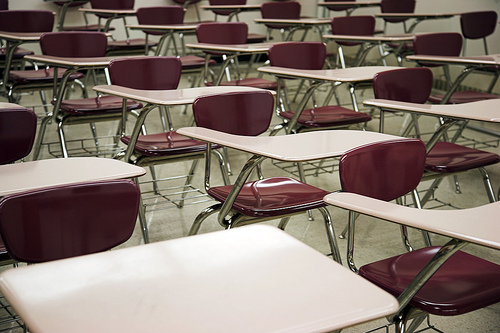One measure of success for any new medical publication is that it lasts long enough for its contents to be proven wrong. The nature of using evidence to improve our decision-making means we discover what we’ve become accustomed to doing is no longer deemed to be best practice, and we need to change it. At […]
One measure of success for any new medical publication is that it lasts long enough for its contents to be proven wrong.
The nature of using evidence to improve our decision-making means we discover what we’ve become accustomed to doing is no longer deemed to be best practice, and we need to change it.
At times, the constant shifting of evidence can make it feel as if we’re building our practice on foundations of jelly. I remember the feeling of disorientation after graduating, when it turned out beta-blockers had switched from being contra-indicated in heart failure, to being indicated. There’s a reason that some alternative medicines find attractiveness in a claim of thousands of years of non-changing wisdom. You just don’t have to worry about new evidence or changing practices.
But I’ve never met a general practitioner who doesn’t want to do better tomorrow than they did today, and we accept, sometimes excitedly, changes that improve the care of our patients. Medical publications have a role in guiding us through discussions about these changes, where the highways are, and when we’re being led down cul-de-sacs. In the absence of infinite wisdom, if they’re doing this right, they’ll sometimes get this wrong.
The most challenging changes to our practice, though, aren’t small changes to the medications indicated in some conditions. Our major challenges often come from patients telling us, sometimes angrily, sometimes hesitantly, their experiences of using our services. It’s tempting to be dismissive. Most people don’t understand the complexities of decision-making in general practice. Why should we listen to outsiders?
Nowhere is this more evident than in my field of Aboriginal and Torres Strait Islander health. My work in an Aboriginal Community Controlled Health Service has gradually taught me that our health institutions are profoundly cultural institutions. Our profession has a deeply ingrained culture of its own, every bit as influential as the much older Aboriginal and Torres Strait Islander cultures we are taught about in cultural awareness training. While learning about these other cultures is important, it’s most effective when we recognise and unlearn features of our own.
Unlearning is a process – at its most profound, an uncomfortable one – of realising that what we have been accustomed to doing is no longer appropriate. It’s not just adding on new knowledge to existing frameworks, but rebuilding the framework itself.
The whole process of medical student education is one of introducing people into the doctor culture – the approaches we take to any given problem, the questions we ask, the behaviours we exhibit. We sometimes call this the hidden curriculum, but I’ve also heard it called brainwashing. It’s almost never explicit, and so it is deeply influential. Much of it is appropriate; “Above all do no harm”, the use of best available evidence to guide our management plans, learning a precise and accurate language for professional communication, and patient-centred care. Sometimes, however, this can hold us back from being as effective as we might be.
For example, we can do harm with the way we are taught to order tests – it’s a brave student who’d suggest not doing any investigations for a particular set of symptoms. Our use of evidence can privilege the best-on-average over what might be right for this particular patient in front of me – and eliciting that requires a particular set of skills to be unlearnt. Our language often includes terms like “compliance,” which is unhelpful, and really just a way of saying “The patient hasn’t done what we discussed, and I can’t be bothered to find out why”. And we love to think ourselves patient-centred, but rarely get around to asking patients what they think.
These are things we have to unlearn. We are already in the process of it, for example, with the suggestion that too much medicine can be harmful and the Choosing Wisely campaign, or in our realisation that we need to tackle the social and environmental causes of ill health that lie well outside our consulting rooms.
In Aboriginal and Torres Strait Islander health, we are unlearning that we need to know about Indigenous cultures so we can change them to be more like us and discovering that we should learn about our own institutional cultures and try changing them instead, which, it turns out, is good for the health of all our patients.
So, I wish The Medical Republic well, and hope it is around long enough to report on which of our current practices we must unlearn. I’d love to see it help that along by challenging us, being subversive, and sometimes, as a measure of its success, just plain wrong.
Dr Tim Senior is a GP working in Aboriginal and Torres Strait Islander Health at GP Tharawal Aboriginal Corporation
For more on unlearning see Rushmer R, Davies HTO. Unlearning in health care. Quality and Safety in Health Care. 2004 Dec;13(suppl 2):ii10-ii15. Available from http://bit.ly/1NtJ5LN


